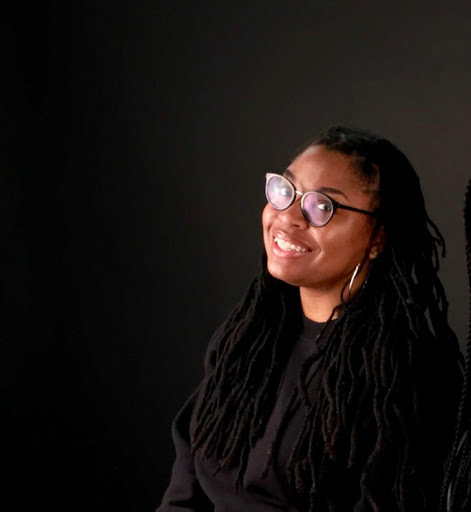|
Chania Crawford  In celebration of Black History Month and Women’s History Month, I was fortunate enough to sit down with Kent State Alumna and part-time adjunct instructor Ile-Ife Okantah to discuss her journalistic work in the entertainment industry. Okantah graduated from Kent State University in 2018 with a bachelor's degree in journalism and mass communication and a double minor in fashion media and public relations. She then graduated in 2021 with a master's degree in journalism and digital media. During her undergraduate years, Okantah served as co-editor-in-chief of UHURU magazine and presented a TEDx Talk on code-switching in the black community. While in her master's program, instead of doing a traditional thesis, Okantah did a series of professional projects where she explored what it meant to be a culture writer and to write about black culture. “I did four essays that would solidify myself as a cultural critic, and then I did a research element that showed how black culture permeates every aspect of our lives and popular culture,” Okantah said. Specializing as a cultural critic freelancer Through a freelance newsletter called "Study Hall," that sends freelancers a weekly newsletter with writing opportunities for different magazines, Okantah was able to write for magazines such as Vulture and GQ. She specializes in cultural criticism and the intersection of Black and popular culture. “Writing for a publication attached to the New York Magazine [Vulture] was so huge to do as one of the first things in my professional writing career,” Okantah said. Vulture needed someone to do a recap of The Real Housewives of Atlanta, and Okantah pitched her idea to them. “They had originally wanted someone to fill in for four weeks, and the woman who normally does the TV show recaps didn’t want to do it anymore, so Vulture gave me the whole season,” Okantah said. Okantah now regularly recaps different Black-centered tv shows for the Vulture. She has recapped The Real Housewives of Atlanta, Rapshit, Atlanta, Abbott Elementary, Kindred, and more. Okantah is currently working on recapping the TV show Snowfall. “My byline in GQ was big; it was an amazing opportunity,” Okantah said. “I got it because of the work I was doing for the Vulture; GQ reached out to me and asked if I wanted to recap the TV show P-Valley.” When she’s not writing for the Vulture or GQ magazine, she’s teaching Media Power and Culture online at Kent State. Inspiring students “I enjoy teaching Media Power and Culture because I love interacting with the students,” Okantah said, “I truly believe everything I did in school set me up for success farther than other people in journalism.” Okantah accredits the extracurricular activities she did with how successful she’s been in her career. “I like that I can show students there are actually careers you can get out of this education besides working for a newspaper or corporate type of work,” Okantah said. “There is the possibility to get out of that, don’t be discouraged from trying other paths that aren’t presented to you at school.” With Okantah teaching Media Power and Culture, she hopes students are inspired by her work and encouraged to try something new than the “black and white” news. “Don’t get discouraged from no’s; you’ll probably hear them a lot in entertainment work,” Okantah said. “You have to remind yourself that with freelance work; you are putting yourself out there for people to pick up your work or not, and you have to keep up the perseverance.” Okantah wants students to remember not to put their eggs in one basket; they need backup plans in case something doesn’t work out. “Remind yourself to do your best with what you have,” Okantah said. “You're not superhuman, and it’s okay to pick up another job, and it’s okay for your career not to be the end all be all in the beginning.” Okantah also wants students to know they don’t have to be stuck working for traditional media outlets after graduating with a degree in media, journalism, or even public relations. “I am a pop culture person,” Okantah said. “I believe there is so much in our society that you can take out of popular culture, entertainment, and things that aren’t just the black-and-white news. It can really help push society forward, and I want to show students that.”
0 Comments
Leave a Reply. |
Archives
February 2024
Categories
All
|
 RSS Feed
RSS Feed
